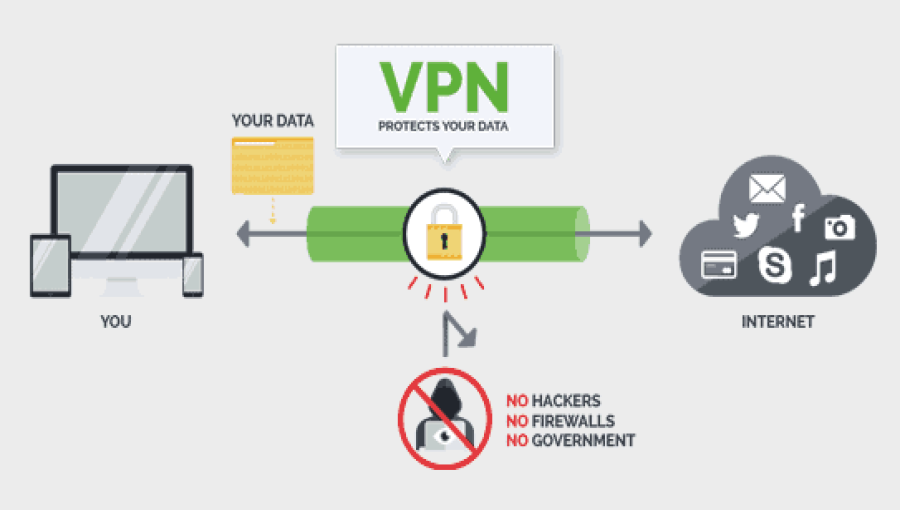What is a VPN?
A Virtual Private Network (VPN) is a service that encrypts your internet connection and hides your online activity from prying eyes. It establishes a secure, encrypted connection between your device and a remote server operated by the VPN service. This makes it appear as if your internet traffic is coming from the VPN server rather than your actual location.
How Does a VPN Work?
When you connect to a VPN, your internet traffic is routed through an encrypted tunnel to the VPN server. The server then forwards your traffic to the internet, masking your IP address and location. This process ensures that your data remains secure and private, even when using public Wi-Fi networks.
Why Should We Use a VPN?
1. Privacy and Security: VPNs protect your online activities from hackers, ISPs, and government surveillance by encrypting your data.
2. Access to Restricted Content: VPNs allow you to bypass geographical restrictions and access content that might be blocked in your region, such as streaming services or websites.
3. Safe Public Wi-Fi Usage: VPNs provide an added layer of security when using public Wi-Fi networks, which are often less secure and vulnerable to cyberattacks.
4. Anonymity: By masking your IP address, VPNs can help you browse the internet anonymously.
Advantages of Using a VPN
-
- Enhanced Security: Encrypts your data, making it difficult for cybercriminals to intercept your information.
- Privacy Protection: Hides your IP address and browsing activity from ISPs and third parties.
- Access to Global Content: Enables you to access websites and services that are restricted in your country.
- Safe Torrenting: Provides a safer environment for downloading and sharing files via peer-to-peer networks.
Disadvantages of Using a VPN
-
- Slower Internet Speed: The encryption process can slow down your internet connection.
- Cost: High-quality VPN services usually require a subscription fee.
- Potential for VPN Blockages: Some websites and services actively block VPN traffic.
Is VPN Harmful for Us?
Using a VPN is generally safe and beneficial for privacy and security. However, the safety of a VPN depends on the provider's trustworthiness and the integrity of their privacy policy. Some VPNs may log your data or have vulnerabilities that can be exploited.
What Kind of VPN Should We Use?
-
- Reputable Providers: Choose VPNs from well-known and reputable providers with strong privacy policies.
- No-Log Policy: Ensure the VPN has a strict no-log policy, meaning they do not store any information about your online activities.
- Strong Encryption: Look for VPNs that use strong encryption standards like AES-256.
- Multi-Platform Support: The VPN should support multiple devices and platforms.
Are Cracked VPNs Safe?
Using cracked VPNs found on Google or other platforms is highly risky and not recommended. These versions are often tampered with and can contain malware or spyware. Additionally, cracked VPNs may lack essential updates and security features, leaving your data vulnerable.
Why Are They Not Safe?
-
- Security Risks: Cracked VPNs can be infected with malicious software that compromises your device and data.
- Lack of Support: These versions do not receive official updates or support, leading to potential security vulnerabilities.
- Legal Issues: Using cracked software is illegal and can result in legal repercussions.
In conclusion, while VPNs offer numerous benefits for privacy, security, and access to restricted content, it is crucial to use reputable and trustworthy VPN services. Avoid cracked VPNs to ensure your online safety and compliance with the law.































Comment: